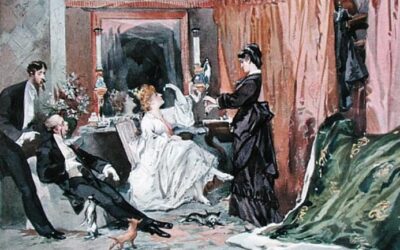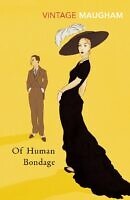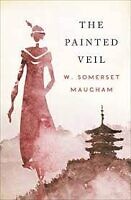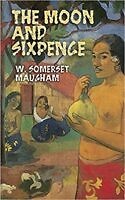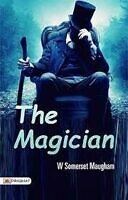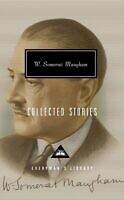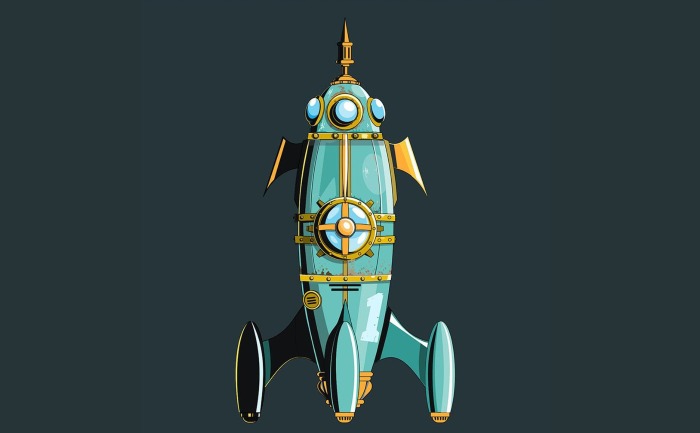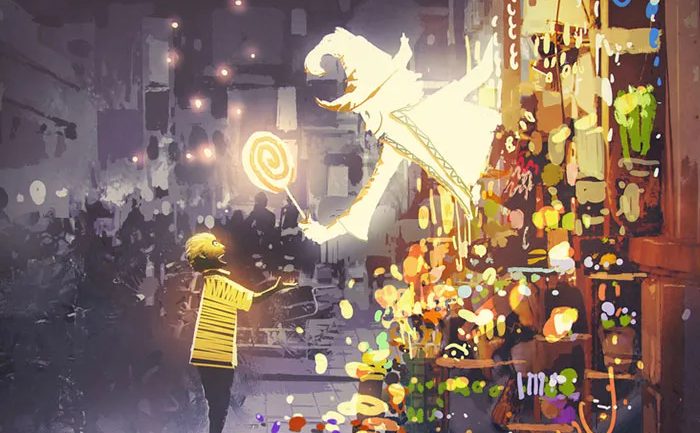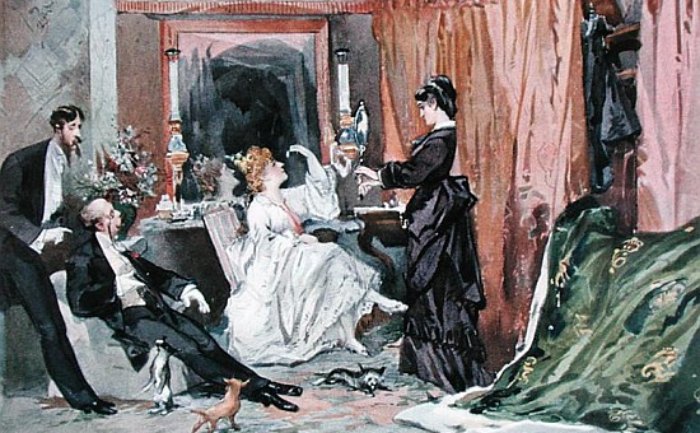The Ant and the Grasshopper by W. Somerset Maugham
 the ant and the grasshopper cover
the ant and the grasshopper cover
The Ant and The Grasshopper by W. Somerset Maugham concerns two brothers, one of whom is a dissolute waster whose hard-working brother has constantly to bail out of difficulties. Originally published in 1924.
This post may contain affiliate links that earn us a commission at no extra cost to you.
The Ant and the Grasshopper by W. Somerset Maugham

The Ant and the Grasshopper by W. Somerset Maugham
When I was a very small boy I was made to learn by heart certain of the fables of La Fontaine, and the moral of each was carefully explained to me.
Among those I learnt was The Ant and The Grasshopper, which is devised to bring home to the young the useful lesson that in an imperfect world industry is rewarded and giddiness punished. In this admirable fable (I apologise for telling something which everyone is politely, but inexactly, supposed to know) the ant spends a laborious summer gathering its winter store, while the grasshopper sits on a blade of grass singing to the sun. Winter comes and the ant is comfortably provided for, but the grasshopper has an empty larder: he goes to the ant and begs for a little food. Then the ant gives him her classic answer:
“What were you doing in the summer time?”
“Saving your presence, I sang, I sang all day, all night.”
“You sang. Why, then go and dance.”
I do not ascribe it to perversity on my part, but rather to the inconsequence of childhood, which is deficient in moral sense, that I could never quite reconcile myself to the lesson. My sympathies were with the grasshopper and for some time I never saw an ant without putting my foot on it. In this summary (and as I have discovered since, entirely human) fashion I sought to express my disapproval of prudence and commonsense.
I could not help thinking of this fable when the other day I saw George Ramsay lunching by himself in a restaurant. I never saw anyone wear an expression of such deep gloom. He was staring into space. He looked as though the burden of the whole world sat on his shoulders. I was sorry for him: I suspected at once that his unfortunate brother had been causing trouble again. I went up to him and held out my hand.
“How are you?” I asked.
“I’m not in hilarious spirits,” he answered.
“Is it Tom again?”
He sighed.
“Yes, it’s Tom again.”
“Why don’t you chuck him? You’ve done everything in the world for him. You must know by now that he’s quite hopeless.”
I suppose every family has a black sheep. Tom had been a sore trial to his for twenty years. He had begun life decently enough: he went into business, married and had two children. The Ramsays were perfectly respectable people and there was every reason to suppose that Tom Ramsay would have a useful and honourable career.
But one day, without warning, he announced that he didn’t like work and that he wasn’t suited for marriage. He wanted to enjoy himself. He would listen to no expostulations. He left his wife and his office. He had a little money and he spent two happy years in the various capitals of Europe. Rumours of his doings reached his relations from time to time and they were profoundly shocked. He certainly had a very good time. They shook their heads and asked what would happen when his money was spent.
They soon found out: he borrowed. He was charming and unscrupulous. I have never met anyone to whom it was more difficult to refuse a loan. He made a steady income from his friends and he made friends easily. But he always said that the money you spent on necessities was boring; the money that was amusing to spend was the money you spent on luxuries. For this he depended on his brother George. He did not waste his charm on him. George was a serious man and insensible to such enticements. George was respectable.
Once or twice he fell to Tom’s promises of amendment and gave him considerable sums in order that he might make a fresh start. On these Tom bought a motor-car and some very nice jewellery. But when circumstances forced George to realise that his brother would never settle down and he washed his hands of him, Tom, without a qualm, began to blackmail him.
It was not very nice for a respectable lawyer to find his brother shaking cocktails behind the bar of his favourite restaurant or to see him waiting on the box-seat of a taxi outside his club. Tom said that to serve in a bar or to drive a taxi was a perfectly decent occupation, but if George could oblige him with a couple of hundred pounds he didn’t mind for the honour of the family giving it up. George paid.
Once Tom nearly went to prison. George was terribly upset. He went into the whole discreditable affair. Really Tom had gone too far. He had been wild, thoughtless and selfish, but he had never before done anything dishonest, by which George meant illegal; and if he were prosecuted he would assuredly be convicted. But you cannot allow your only brother to go to gaol.
The man Tom had cheated, a man called Cronshaw, was vindictive. He was determined to take the matter into court; he said Tom was a scoundrel and should be punished. It cost George an infinite deal of trouble and five hundred pounds to settle the affair. I have never seen him in such a rage as when he heard that Tom and Cronshaw had gone off together to Monte Carlo the moment they cashed the cheque. They spent a happy month there.
For twenty years Tom raced and gambled, philandered with the prettiest girls, danced, ate in the most expensive restaurants, and dressed beautifully. He always looked as if he had just stepped out of a bandbox. Though he was forty-six you would never have taken him for more than thirty-five. He was a most amusing companion and though you knew he was perfectly worthless you could not but enjoy his society. He had high spirits, an unfailing gaiety and incredible charm.
I never grudged the contributions he regularly levied on me for the necessities of his existence. I never lent him fifty pounds without feeling that I was in his debt. Tom Ramsay knew everyone and everyone knew Tom Ramsay. You could not approve of him, but you could not help liking him.
Poor George, only a year older than his scapegrace brother, looked sixty. He had never taken more than a fortnight’s holiday in the year for a quarter of a century. He was in his office every morning at nine-thirty and never left it till six. He was honest, industrious and worthy. He had a good wife, to whom he had never been unfaithful even in thought, and four daughters to whom he was the best of fathers.
He made a point of saving a third of his income and his plan was to retire at fifty-five to a little house in the country where he proposed to cultivate his garden and play golf. His life was blameless. He was glad that he was growing old because Tom was growing old too. He rubbed his hands and said:
“It was all very well when Tom was young and good-looking, but he’s only a year younger than I am. In four years he’ll be fifty. He won’t find life so easy then. I shall have thirty thousand pounds by the time I’m fifty. For twenty-five years I’ve said that Tom would end in the gutter. And we shall see how he likes that. We shall see if it really pays best to work or be idle.”
Poor George! I sympathised with him. I wondered now as I sat down beside him what infamous thing Tom had done. George was evidently very much upset.
“Do you know what’s happened now?” he asked me.
I was prepared for the worst. I wondered if Tom had got into the hands of the police at last. George could hardly bring himself to speak.
“You’re not going to deny that all my life I’ve been hard-working, decent, respectable and straightforward. After a life of industry and thrift I can look forward to retiring on a small income in gilt-edged securities. I’ve always done my duty in that state of life in which it has pleased Providence to place me.”
“True.”
“And you can’t deny that Tom has been an idle, worthless, dissolute and dishonourable rogue. If there were any justice he’d be in the workhouse.”
“True.”
George grew red in the face.
“A few weeks ago he became engaged to a woman old enough to be his mother. And now she’s died and left him everything she had. Half a million pounds, a yacht, a house in London and a house in the country.”
George Ramsay beat his clenched fist on the table.
“It’s not fair, I tell you, it’s not fair. Damn it, it’s not fair.”
I could not help it. I burst into a shout of laughter as I looked at George’s wrathful face, I rolled in my chair, I very nearly fell on the floor. George never forgave me. But Tom often asks me to excellent dinners in his charming house in Mayfair, and if he occasionally borrows a trifle from me, that is merely from force of habit. It is never more than a sovereign.
Best W. Somerset Maugham Books
Of Human Bondage
W. Somerset Maugham’s masterwork is the coming-of-age story of Philip Carey, a sensitive young man consumed by an unrequited and self-destructive love.
Born with a clubfoot, Philip is orphaned as a child and raised by unsympathetic relatives. Sent to a boarding school where he has difficulty fitting in, he grows up with an intense longing for love, art, and experience. After failing to become an artist in Paris, he begins medical studies in London, where he meets Mildred, a cold-hearted waitress with whom he falls into a powerful, tortured, life-altering love affair.
This is the most autobiographical of Maugham’s works, with Philip’s malformed foot standing in for Maugham’s stutter, and the character’s painful romantic struggles inspired by the author’s own intense love affairs with both men and women. A brilliant and deeply moving portrayal of the price of passion and the universal desire for connection, Of Human Bondage stands as one of the most accomplished novels in English literature.
The Painted Veil
Published as a complete novel in 1925, The Painted Veil is a powerful novel of transgression and redemption. Maugham tells the story of the lovely and superficial Kitty Garstin and her unhappy marriage to Walter Fane, a quiet and honorable man. Kitty agrees to marry Walter not because she loves him, but because she fears being upstaged by her younger sister.
Kitty travels to Tching-Yen (Hong Kong) with her new husband, where he is posted as a government scientist, and Kitty soon falls in love with her husband’s colleague, the handsome and charming Charlie Townsend.
Walter is not as clueless about her behavior as Kitty would like to believe, and eventually rejected by her selfish lover, he has her travel with him to mainland China to help during a dangerous cholera epidemic. The experience utterly transforms Kitty and she begins to take responsibility for her mistakes and understand her shortcomings. Beautiful and deeply affecting, The Painted Veil is a thought-provoking study of the ability of people to change, grow, and learn how to love deeply.
The Moon and the Sixpence
Gripped by an overwhelming obsession, Charles Strickland, a conventional London stockbroker, decides in midlife to desert his wife, family, business, and civilization for his art. One of Maugham’s most popular works, The Moon and Sixpence is a riveting story about an uncompromising and self-destructive man who forsakes wealth and comfort to pursue the life of a painter.
Drifting from Paris to Marseilles, Strickland eventually settles in Tahiti, takes a mistress, and in spite of poverty and a long, terminal illness, produces his most passionate and mysterious works of art.
Loosely based on the life of Paul Gauguin, Maugham’s timeless masterpiece is storytelling at its best — an insightful work focusing on artistic fixation that propels the artist beyond the commonplace into the selfish realm of genius.
The Magician
Maugham’s enchanting tale of secrets and fatal attraction The Magician is one of Somerset Maugham’s most complex and perceptive novels. Running through it is the theme of evil, deftly woven into a story as memorable for its action as for its astonishingly vivid set of characters. In end of the 20th Century Paris, Arthur and Margaret are engaged to be married. Everyone approves and everyone seems to be enjoying themselves—until the menacing and repulsive Oliver Haddo appears.
Collected Stories
Though W. Somerset Maugham was also famous for his novels and plays, it has been argued that in the short story he reached the pinnacle of his art.
These expertly told tales, with their addictive plot twists and vividly drawn characters, are both galvanizing as literature and wonderfully entertaining. In the adventures of his alter ego Ashenden, a writer who (like Maugham himself) turned secret agent in World War I, as well as in stories set in such far-flung locales as South Pacific islands and colonial outposts in Southeast Asia, Maugham brings his characters vividly to life, and their humanity is more convincing for the author’s merciless exposure of their flaws and failures.
If you enjoyed The Ant and the Grasshopper by W. Somerset Maugham, check out our Quintessential W. Somerset Maugham profile
Narrated by Michele Fry, courtesy of Libravox.org






